
After going through all the precautions through your trimesters and bearing the pain and discomfort of delivery, be it normal or C-section, you finally hold your tiny tot in your hands. And while initial months with your newborn can be exhilarating and exhausting, you might dream of a vacation. The thought of vacationing with your newborn or even your toddler is sure to fill your heart with happiness and your mind with queries. Travelling with your bundle of joy for the first time can sure be intimidating, even for seasoned travellers. When you are driving with a baby, you have an extra facility of halting at your choice of place. You can stop at any store that you pass by for baby food, diaper and other stuffs. While flying with a baby is easier and quicker, some planning before hand is required, especially about feedings, layovers, diaper changes and confinement. And of course the thought of a wailing baby in confinement can be dreadful, but babies do scream and that doesn’t make you a bad parent, so no going on a guilt trip during your trip please!

Image Credit: https://www.youtube.com/watch?v=TS2-sB7gv3Q
How Soon Can You Fly With A Baby? (When Is The Earliest A Baby Can Fly?)
Since newborns have a developing immune system it makes them more susceptible to illness. It is advised that you should wait till the time your baby turns 3 months old before you board the flight with your bundle of joy. However, there are airlines that allow infants as young as 2 days old to travel.
But if you do not have any choice and have to travel with a newborn, do not get worked up. Just make sure that you use sanitizer frequently or wash your hands to protect your baby from germs. Also try to keep your baby at a safe distance from other travellers to avoid germs and infections.
Can I Carry Stroller and Car Seat of My Baby?
It is advised that you first check your airline’s policy but the good news is that each ticketed passenger is allowed to check one car seat and one stroller without any extra cost at the ticket counter by most airlines. Some airlines may allow either one car seat or one stroller at the gate regardless of whether you have paid infant fare or you are travelling with a lap infant. So just go through your airline’s policy and you are good to go.
What documents do I need for taking my baby on a plane?
Documentation required varies from airline to airline. But while travelling with a baby, you are sure to show some type of documentation, irrespective of whether your infant has his own seat or she is a lap infant. It is advised you do carry your baby’s birth certificate. Some airlines might ask you to present proof of age or a birth certificate and some may ask you to give a medical form completed by your paediatrician if you are travelling with a baby less than 7 days old.
While travelling internationally, your baby’s passport and/or travel visas are a must. The non-travelling parents will have to sign a letter of consent if your baby is travelling internationally without both parents. You should contact your airline in advance and learn about the documents you need to present so that you do not face any hassle while boarding the flight.
How do I protect my baby's ears when flying?
Temporary changes in middle ear pressure can be caused due to change in cabin pressure during a flight. Your tiny tot might feel uncomfortable and have ear pain during a flight because of that. To help your baby relieve the uneasiness it is advised that you either offer your baby a bottle or pacifier or breastfeed your baby during the initial descent and takeoff. We do understand that it is not always possible to time feedings during landing and takeoffs, but feeding your baby during this time might be of great help as it will ease the pain and crying by equalizing the pressure in their ears. So if possible, try time feedings during takeoffs and landing.
In case your little one has had any ear infection or ear surgery two weeks before you are scheduled to board your flight, you should first meet your paediatrician and enquire if it is safe for the baby to travel or not?
How To Reduce Cabin Noise When My Baby Wants To Sleep?
Airplane’s engine, cabin noise and chatter from other passengers might make it difficult for your bundle of joy to sleep which may result in a fussy, overly tired baby. In order to make sleep easier for your teeny weeny, try using small earplugs, noise-cancelling headphones or cotton balls, that will limit your tiny tot’s exposure to noise.
Can My Baby Have Breathing Problem In An Airplane?
The air pressure in an aircraft cabin is less than that on land. This temporary change in air pressure does not pose any threat to healthy babies. But if your baby has any respiratory, lung or heart issue, or your baby was born premature then you need to consult your doctor for more details and information about when it is safe to board a flight with your little one.
What Baby Travel Items Can I Bring On The Airplane?
While travelling with a baby, there are a number of things that you need to keep in mind, so that you do not forget anything that your little one might require. Following is basic checklist while you are flying with your tiny tot. Just stick to the must haves, though we totally understand while you are packing everything seems important.
- Car seat
- Stroller
- Diapers
- Diaper rash cream
- Diaper disposable bags
- Changing pads
- Baby lotions
- Hand sanitizers
- Baby wipes
- Mosquito repellent
- Old newspapers
- Blankets
- Nursing cloth
Can I bring baby bottle on a plane?
Yes, you surely can bring your baby bottles and we would recommend that you should pack some extra nipples as well because washing the bottles on an airplane might get tough. You may also pack your baby’s favourite sippy-cup, it may come handy if the tiny tot gets fussy. You should also pack -
- Formula
- Water flask filled with boiled water in which you can make your formula.
- Extra pacifiers
- Baby’s food jars and ready to mix cereal
- Burp clothes
- Breast pump (if required)
- Breast pads
- Bibs – Carry both washable and disposable bibs with you.
- If your baby has started having solid food you may carry your baby’s favourite biscuits, banana, cheeku or yogurt.
- Travel toys that are non noisy, you sure won’t want you co-passengers eyes rolling at you.
First-Aid Packing Checklist
While travelling with your baby, it is recommended that you carry a small basic first-aid kit that contains –
- Thermometer
- Nail clippers to trim baby nails
- Baby’s medicines for cough, fever, cold, vomiting and lose motion
- Calamine lotion
- Antiseptic solution, bandage and cotton
- Vitamins and tonics
Make sure you get your bundle of joy’s vaccinations done ahead of time so that when you are about to travel there is no reaction.
Can I Travel Without A Stroller?
Yes, you can. Travelling light is always recommended. And guess what, you may rent baby equipments like playpens, strollers, high chairs and bassinets at your destination. There are rental companies that can also get baby equipments delivered at you resort, relative’s house or hotel.
Tips For Travelling With A Baby On An Airplane (Tips For Flying With A Baby)
Reserving the seats
Reserving the right seat on an airplane can make a difference while travelling with babies. If you book a window seat it will help you earn more privacy with your bundle of joy which makes feedings and sleeping more comfortable. Window seats help in avoiding the risk of being knocked into by carts rolling and people through the aisle, or items falling from the baggage compartment above.
Another air travel tip with a baby is to staying away from airplane bathrooms. Slamming of the bathroom door frequently can make sleeping difficult for your baby.
Reach the Airport Early
First things first, you should reach the airport well in advance in order to avoid the last minute rush. Airlines also allow you to pre-board with an infant which results in getting settled before other passengers get on the flight. This also gives you time to feed or change the baby before getting into the plane.
Getting Through Airport Security
It is important to organize everything to avoid any extra time lag during airport security check. One of the advantages of travelling with infant is that it is quite easy to get through security with the baby in a metal-free sling. Baby can sleep without being disturbed, and probably you may not be asked to remove the baby from the sling. But it should be noted that you will be required to remove the baby from the sling before takeoff.
Ask for Help
In the flight, whenever you need help with your infant, ask the person sitting next to you or a flight attendant. There is no harm in asking for help from others as most of them would be more than willing to oblige. There may be a few spills here and there or your baby may start crying loudly, but instead of panicking, remain cool and organized. Remember getting angry or frustrated will help you by no means.
Check the airline’s infant policy
Going through the infant policy of the airline while flying with your newborn is sure to help you in many ways as there are no standard regulations or rules and infant policies vary from airline to airline. Some airlines may ask for a fit-to-fly letter and some may ask you to bring the birth certificate. It is advised to know the infant policy before boarding your flight.
Baby Supplies
Pack in ample baby supplies or even more supplies than you might actually need, especially baby diapers, baby food and formula milk. This comes handy in cases where flight delays can your trip by several hours and the baby might become fussy.
Dressing Baby in Layers
It is recommended that your dress your baby in layers as a baby can become cranky when it feels too cold or too warm. You can avoid the fuss if you dress your baby in layers by taking off a cloth or two when the baby becomes too warm. Carrying a blanket is always advised and make sure that you pack extra pair of clothes, they are saviours. You can thank us later!
Try booking a non-stop flight or choose a flight that has a longer layover
While flying with your baby it is recommended that you make an itinerary with a nonstop flight. What is the benefit? Well, you will have to deal with one flight and one boarding procedure.
But just in case a nonstop flight is not possible, then choose a flight that has a longer layover between flights. How it helps? You will not have to race from one gate to another with a baby in hand. Also you will get time to stretch your legs and change that diaper.

Image Credit: https://www.youtube.com/watch?v=7Tb-YaKDmF0
Do not take your last trip as the reflection of your next trip
Your bundle of joy will change with each passing day. So if your last flight experience wasn’t as pleasant as you expected, do not get scared. Just learn from the previous experience, do things differently this time, and chances are your baby might have changed from that flight and when you board the plane this time; you might have a different experience all together. Be as excited for your holiday as you were for the first time, or even more.
Rude passengers might upset you, do not get into that negativity
While I travelled with my infant, the co-passengers on my airplane were more than helpful and friendly. However, chances are that you may encounter some passengers who might pass rude comments, just ignore them. It’s easier said than done, but remember, crying is the only form of communication that your baby knows and how else do they inform you if they are hungry or have an ear pain during the flight? Don’t let the comments of rude passengers rattle you. Why? Firstly, because they are adults, and if the coos and cries of the baby is bothering them, they can use headphones to block out the sound and secondly, you also purchased the flight tickets just like they did and that makes you as entitled to be on the flight as they are. Do not forget that there are other passengers on flight who are sending you positive vibes as they have been in your shoes at some point in their life.
Still freaking out with the thought of flying with your baby? Don’t stress over it. Usually airlines are family friendly and they always try to make your experience of flying with them enjoyable, even if they have to walk an extra mile for that. You also need to know that smoothing out all the turbulence is not possible; however, you can prepare yourself well for the security line, on board and at the gate.
Conclusion
So whether you are going on a vacation or visiting grandma with your bundle of joy, flying first time with your baby is sure to make you a little nervous, it is completely normal, but losing your sanity is not. It is advised that you first speak to your paediatrician before travelling with your newborn. Babies tend to be fussy and cry when on a flight. If your tiny tot is doing the same, it is no exception. Worried about your co-passengers? You should know that many passengers on board have been there, done that. It is not necessary that you will go through a wringer while you fly with your little one, so just breathe in and breathe out. A bit of planning and patience is sure to make your flight and journey smoother and memorable. And even if you do face turbulent weather within the flight with your newborn, you are bound to land on land and life will get back to normal! Bon Voyage!
Article Source:
Sources: https://www.healthline.com/health/parenting/flying-with-a-baby
https://www.mayoclinic.org/healthy-lifestyle/infant-and-toddler-health/expert-answers/air-travel-with-infant/faq-20058539
https://www.babycantravel.com/flying-with-a-baby
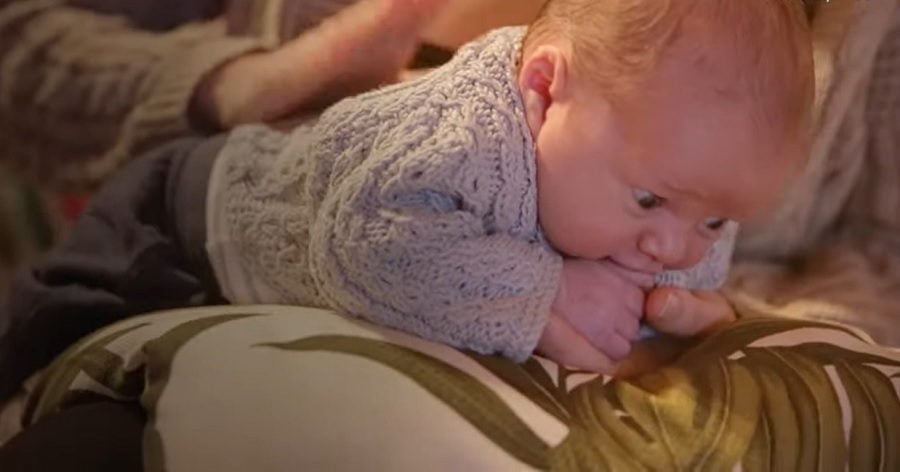 Step-By-Step Guide To Burp Your Baby: How and When?
Step-By-Step Guide To Burp Your Baby: How and When?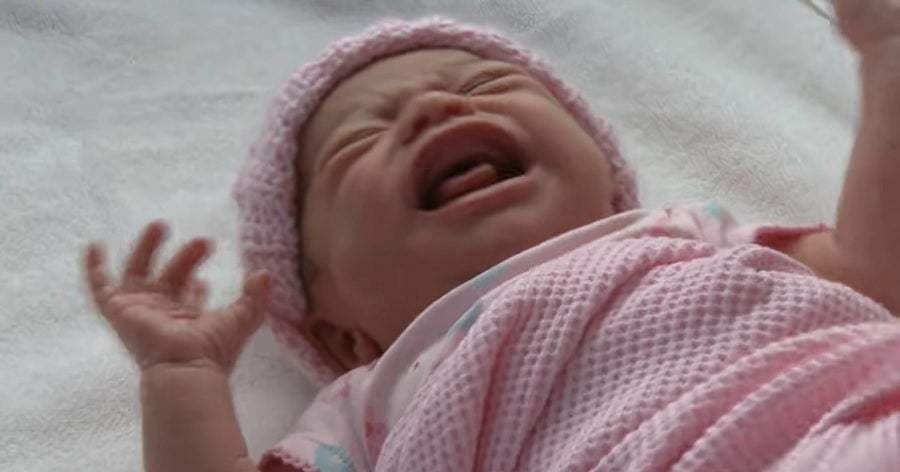 Excessively Crying Baby: Reasons & Remedies to Comfort Your Infant
Excessively Crying Baby: Reasons & Remedies to Comfort Your Infant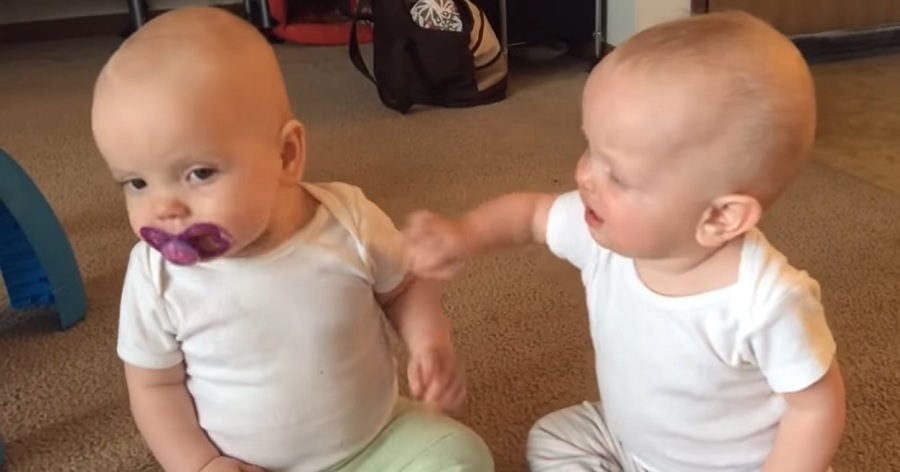 Baby Pacifiers Guide: Advantages, Disadvantages And How To Wean The Baby From A Pacifier
Baby Pacifiers Guide: Advantages, Disadvantages And How To Wean The Baby From A Pacifier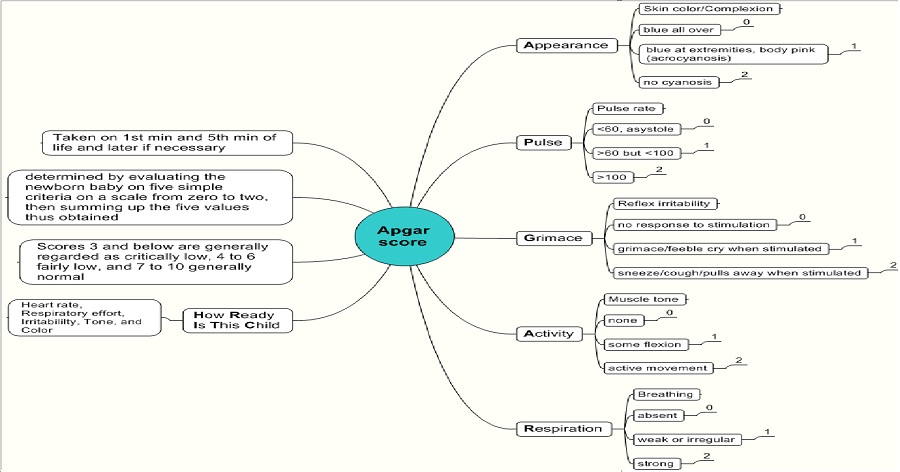 APGAR Score
APGAR Score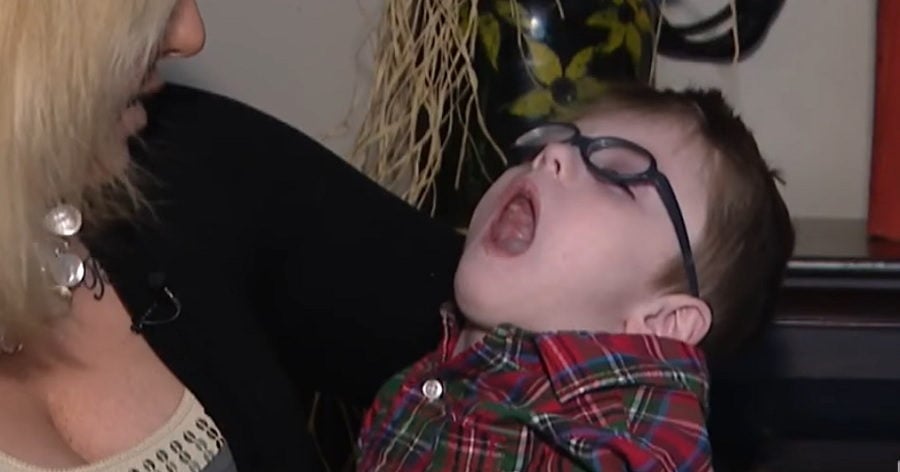 Shaken Baby Syndrome
Shaken Baby Syndrome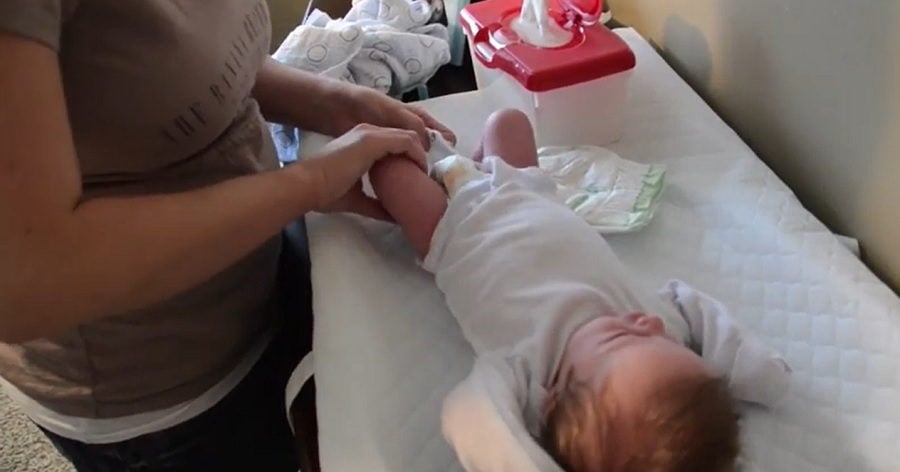 Types of Diaper Rash: Tips & Home Remedies To Treat Nappy Rash Naturally
Types of Diaper Rash: Tips & Home Remedies To Treat Nappy Rash Naturally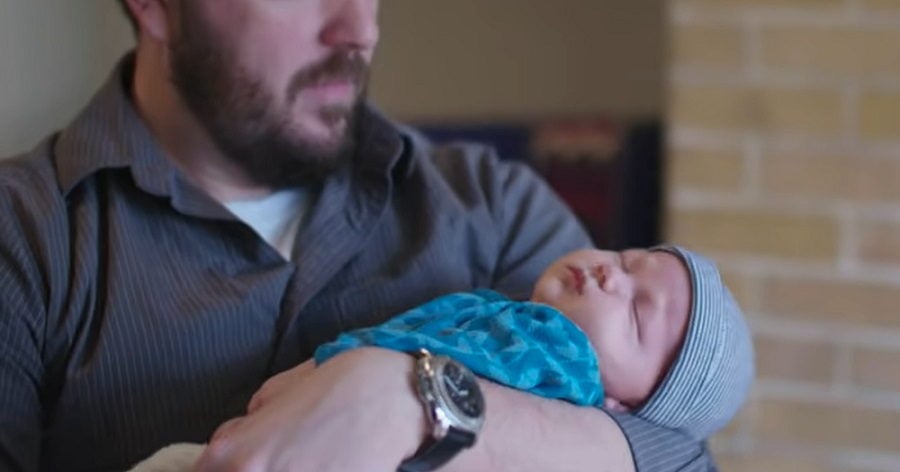 A Step-By-Step Guide on Infant Sleep Training: Baby Sleep Methods, Sleep Schedule & Sleep Position
A Step-By-Step Guide on Infant Sleep Training: Baby Sleep Methods, Sleep Schedule & Sleep Position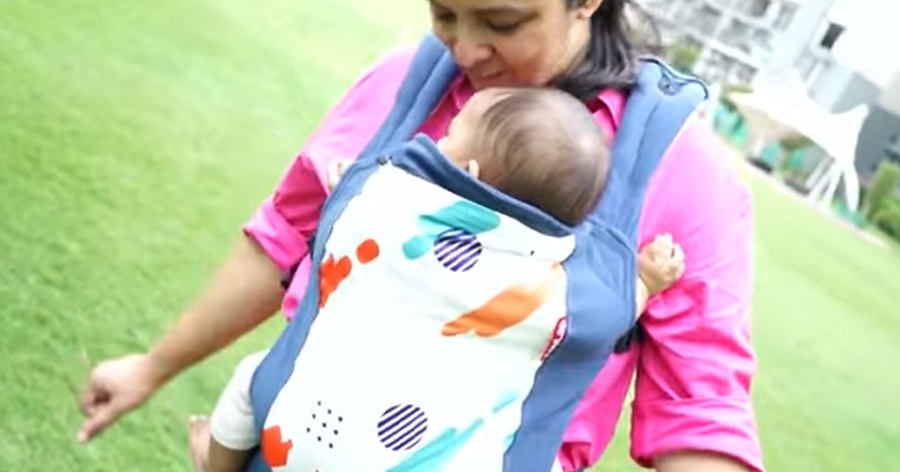 Baby Safety Products
Baby Safety Products